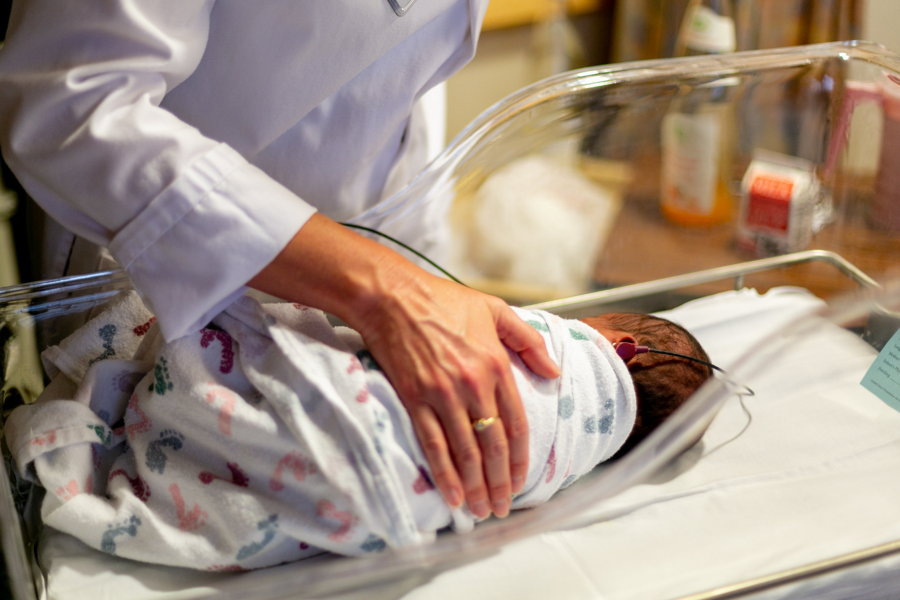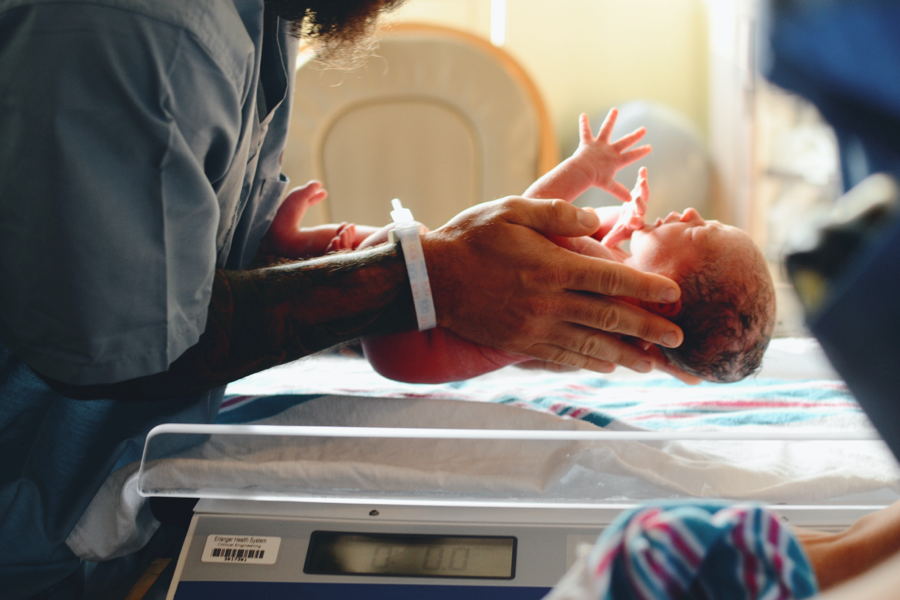
NEWS & RESEARCH
Neonatal Nursing in Rural and Underserved Communities
-
 EveryNurse Staff
EveryNurse Staff
- Last Updated: 05/08/2023

Providing quality neonatal care is essential in ensuring the healthy development of newborn babies, particularly those born in rural and underserved communities. However, neonatal nurses face numerous challenges when it comes to providing care in these areas. In this article, we’ll explore the challenges faced by neonatal nurses in rural areas, the importance of neonatal care in underserved communities, and strategies for improving neonatal care in these settings.
Challenges Faced by Neonatal Nurses in Rural Areas
Limited Access to Advanced Medical Equipment
Rural hospitals and clinics may not have access to the full range of medical equipment available in larger metropolitan hospitals. This can make it difficult to diagnose and treat newborns with complex medical issues. For example, a hospital may not have a neonatal ICU, making it challenging to provide critical care for newborns. In addition, some hospitals may not have the necessary equipment to perform certain diagnostic tests or procedures, which can delay treatment and compromise the health of the newborn.
Moreover, the lack of advanced medical equipment may also impact the morale of neonatal nurses. Nurses may feel frustrated and helpless when they are unable to provide the best care possible due to the lack of resources available to them.
Staffing Shortages and High Workloads
Staffing shortages and high workloads are prevalent in rural hospitals and clinics, particularly in underserved communities. Neonatal nurses may have to work long hours without the necessary support to provide quality care. Subsequently, this can lead to burnout, affecting the quality of care they provide. Furthermore, staffing shortages can also lead to a lack of continuity of care, as nurses may not be able to follow up with newborns they have cared for previously.
It is important to note that staffing shortages are not only limited to nurses but also to other healthcare professionals, such as physicians, respiratory therapists, and lab technicians. This can further exacerbate the workload of neonatal nurses, who may have to take on additional responsibilities.
Lack of Specialized Training Opportunities
Neonatal nursing requires specialized training and experience to provide optimal care for newborns. However, nurses working in rural areas may have limited access to training opportunities, making it difficult to stay up-to-date with the latest medical advancements and best practices. This can impact the quality of care provided to newborns, as nurses may not be aware of the latest treatment options or may not have the necessary skills to perform certain procedures.
Moreover, the lack of specialized training opportunities may also impact the career development of neonatal nurses. Nurses may feel that they are not growing professionally or may not have the opportunity to specialize in a particular area of neonatal nursing.
Transportation and Accessibility Issues
Rural areas are often located far from regional medical centers, making it difficult to transport critically ill newborns to specialty care. Additionally, limited transportation options, such as long distances to travel or lack of transportation services, may make it challenging to get to the hospital for routine check-ups and care. This can delay the diagnosis and treatment of medical conditions, which can have serious consequences for the health of the newborn.
Furthermore, transportation and accessibility issues may also impact the families of newborns. Families may have to travel long distances to visit their newborns in the hospital or may not have access to transportation services, which can impact their ability to be involved in their newborn’s care.
Importance of Neonatal Care in Underserved Communities
Despite the challenges faced by neonatal nurses in rural areas, the importance of neonatal care in underserved communities cannot be overstated. Providing quality care for newborns can help reduce infant mortality rates, promote early detection and intervention, support families and caregivers, and address health disparities.
Reducing Infant Mortality Rates
Improving neonatal care in rural areas can help reduce infant mortality rates, which are often higher in underserved communities than in urban areas. Providing timely and effective care can help prevent complications that may lead to premature birth or other health issues, ultimately saving lives.
For example, neonatal nurse practitioners can work with expectant mothers to identify and manage risk factors that may increase the likelihood of complications during pregnancy. They can also provide education and support to new parents to ensure that they have the knowledge and resources they need to care for their newborn.
Promoting Early Detection and Intervention
Early detection and intervention can be critical in ensuring the healthy development of newborns. Providing access to routine check-ups and specialized care can help identify potential issues early and address them before they become more serious.
Neonatal nurses can play a key role in this process by conducting regular assessments of newborns and monitoring their growth and development. They can also work closely with other healthcare professionals, such as pediatricians and occupational therapists, to develop comprehensive care plans that address the unique needs of each newborn.
Supporting Families and Caregivers
Providing care for a premature or sick newborn can be stressful and overwhelming for families and caregivers. Neonatal nurses can provide support, education, and guidance to families and caregivers, ultimately helping them feel more confident in their ability to care for their newborn.
For example, neonatal nurses can provide families with information about breastfeeding and help them develop a feeding plan that meets the nutritional needs of their newborn. They can also provide emotional support to families who may be struggling with the challenges of caring for a sick or premature newborn.
Addressing Health Disparities
Rural and underserved communities often face significant health disparities, including limited access to healthcare services and higher rates of chronic diseases. By improving neonatal care in these areas, we can make strides in closing these gaps and promoting health equity for all.
Neonatal nurses can work with community organizations and healthcare providers to develop outreach programs that provide education and support to families in underserved communities. They can also advocate for policies and funding that support the development and expansion of neonatal care services in rural areas.
Strategies for Improving Neonatal Care in Rural Settings
The challenges facing neonatal nurses in rural areas can seem daunting, but there are strategies that healthcare providers and policymakers can implement to improve the quality of care provided to newborns in underserved communities. In this article, we will explore some of the most effective strategies for improving neonatal care in rural settings.
Telemedicine and Remote Consultations
Telemedicine and remote consultations can help improve access to specialized care for newborns in rural areas. Providers can offer remote consultations to neonatal nurses in rural hospitals, providing guidance and support to help them diagnose and treat complex medical issues. This can be especially helpful in situations where a newborn requires specialized care that is not available locally.
With the help of telemedicine, neonatal nurses in rural areas can connect with specialists in larger medical centers who can provide guidance and support in real-time. This not only improves the quality of care provided to newborns but also helps to reduce the need for costly and time-consuming transfers to larger medical centers.
Mobile Health Units and Outreach Programs
Mobile health units and outreach programs can bring specialized neonatal care directly to underserved communities. These programs can provide routine check-ups, education, and support for families and caregivers, ultimately improving the health outcomes of newborns in rural areas.
Mobile health units can be especially effective in reaching families who live in remote areas and may not have easy access to medical care. These units can be equipped with the necessary medical equipment and staffed by healthcare providers who are trained in neonatal care. They can travel to different communities, providing care and support to families who may not otherwise receive it.
Collaborative Care Models and Partnerships
Collaborative care models and partnerships between rural hospitals and larger regional medical centers can help provide access to specialized care and improve outcomes for newborns in rural areas. For example, a regional medical center could provide training and support to rural hospitals to help them care for critically ill newborns.
These partnerships can also help to reduce the need for transfers to larger medical centers, which can be costly and stressful for families. By providing specialized care locally, rural hospitals can ensure that newborns receive the care they need without having to travel long distances.
Community-Based Education and Training
Community-based education and training programs can help improve the quality of care provided by neonatal nurses in rural areas. These programs can provide specialized training and education to neonatal nurses, promoting professional development and enhancing their ability to provide quality care.
These programs can also help to improve communication and collaboration between healthcare providers in rural areas. By bringing together neonatal nurses, physicians, and other healthcare providers, these programs can help to create a more cohesive and effective healthcare system.
Conclusion
Providing quality neonatal care in rural and underserved communities is a complex challenge, but it is essential for promoting the health and well-being of newborns. By addressing the challenges faced by neonatal nurses in rural areas and implementing strategies to improve neonatal care in these settings, we can make significant strides towards closing health disparities and promoting health equity for all.















